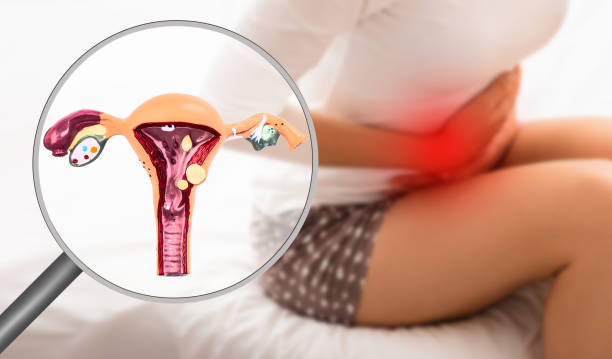Endometriosis is a chronic condition that affects women’s reproductive systems. When the tissue that lines the uterus grows outside, it causes inflammation and pain. Endometriosis can be debilitating and significantly impact the quality of life of females. It can cause a lot of pain, bleeding, and fertility issues. Coping with endometriosis can be challenging, but there are several strategies that women can use to manage their symptoms and improve their overall well-being. There is no definitive cure for this condition, but some tips and lifestyle changes can ease your symptoms so that it does not affect your day-to-day life. You should consult a gynecologist for guidance and therapies as they can lessen endometriosis symptoms.
Coping with Endometriosis
Here are some helpful tips on how to cope with endometriosis.
1. Learn about endometriosis:
Start by educating yourself about the condition. Understanding the causes, symptoms, and treatments of endometriosis can help you make informed decisions about your health. Gather more information about endometriosis to manage it properly. Many resources that are available online, including support groups and educational websites, can provide information about endometriosis.
2. Use pain management techniques:
Endometriosis can cause severe pain, especially during menstruation. There are several pain management techniques that you can use to help alleviate your symptoms. Some examples include taking pain medication, applying heat to the affected area, practicing relaxation techniques such as deep breathing or meditation, and engaging in light exercise, yoga, or walking. Try different methods daily to find the best for you.
3. Practice self-care:
Coping with endometriosis can be emotionally and physically draining. It is important to practice self-care to help manage stress and improve your overall well-being. Some examples of self-care include getting enough rest, eating a healthy diet, engaging in regular physical activity, and practicing relaxation techniques such as meditation or mindfulness. Self-care can help you feel more in control of your symptoms and improve your quality of life.
4. Seek support from loved ones:
Endometriosis can be a lonely and isolating condition. It can be helpful to seek support from others who are going through similar experiences. There are several online and in-person support groups for women with endometriosis. These groups can provide a safe space to share your experiences, ask questions, and receive emotional support from friends and family.
5. Manage stress:
Stress can exacerbate symptoms of endometriosis. It is vital to manage your stress to help reduce the impact of your symptoms. Some effective stress management techniques include deep breathing, mindfulness, yoga, exercise, and meditation. Identify your sources of stress and find ways to address them. It may involve lifestyle changes such as reducing your workload or setting boundaries with others.
6. Consider alternative therapies:
There are several alternative therapies canons of endometriosis. Some examples include acupuncture, chiropractic care, and massage therapy. While there is limited scientific evidence to support the use of these therapies, some women find them to help manage essential to talk to their doctor before starting any alternative therapy to ensure that it is safe for them.
7. Seek medical treatment:
If you have endometriosis, it is crucial to seek medical treatment. Your doctor can help you manage your symptoms and provide information about available treatments. Surgery, hormonal therapy, and pain medication are effective treatments for this condition. Your doctor can help you determine the best treatment based on your symptoms and medical history.
8. Advocate for yourself:
Finally, advocate for yourself when it comes to managing endometriosis. It may involve educating others about the condition, speaking up about your symptoms and needs, and advocating for better medical care and research. You can also get involved in advocacy organizations that work to raise awareness about endometriosis.
Conclusion
Endometriosis is a severe disease, and you should consult a gynecologist in Islamabad to make it manageable. Some steps can help control the symptoms, such as letting go of stress, managing stress, getting support from loved ones, and practicing self-care. There are some alternative therapies that can enhance your condition.

